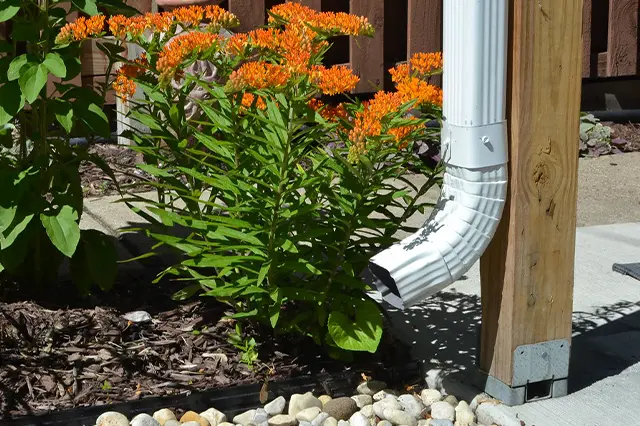5 Tips For Choosing The Right Rain Gutter Installation Company
When it comes to rain gutters, it’s important to choose the right installation company. Not only will this ensure that your gutters are installed correctly, but it will also save you time and money in the long run. To help make the decision easier, check out these 5 tips for choosing the right rain gutter installation company.
Identify the Type of Gutters You Need
To choose the right rain gutters installation company for your home, it’s important to understand the different types of gutters available. The three most common types of gutters are fascia gutters, corrugated metal roof gutter systems, and soffit mounted gutter systems.
Fascia Gutters: Fascia gutters are a popular choice for new homes because they’re easy to install and maintain. They consist of a series of metal brackets that are attached to the exterior wall. These brackets then attach to the gutter system using wires or screws. Because fascia gutters are so easy to install, they’re a great option for homeowners who aren’t experienced in home repairs or renovations.
Corrugated Metal Roof Gutter Systems: Corrugated metal roof gutters are another popular type of gutter system. They’re similar to fascia gutters in that they consist of metal brackets and wire or screw attachments. However, corrugated metal roof gutters also have a ridged design on top. This design helps reduce water droplets from flowing back down into your roofing material.
Soffit Mounted Gutter Systems: Soffit mounted gutter systems are unique because they don’t attach directly to your roofing material. Instead, soffit mounted gutter systems connect to your eaves (the overhang on either side of your roof). This allows you to easily remove them if you need to replace your roofing material.
If you’re not sure which type of gutters are right for your home, contact a rain gutters installation company. We can help you choose the best system for your home.
Choose the Right Company for Your Needs
If you’re considering installing a rain gutter, it’s important to choose the right company. Do your research and be sure to ask plenty of questions before choosing a contractor. Here are some tips for choosing the best rain gutter installation company:
1. Ask Around
The best way to find the right rain gutter installation company is to ask around. Talk to your friends, family, and neighbors, and see if anyone has had any experience with a particular contractor. You can also check online reviews to get an idea of how reputable a company is.
2. Get A Quotation
Before hiring a contractor, make sure you get a quotation. This will help you understand what the cost of the project will be and whether it’s in line with your budget. Make sure you have all the details handy, including information on materials and labor.
3. Verify The Contractor’s License and Insurance
Make sure the contractor you’re considering has both a valid license and insurance coverage. Both of these measures should be verified before signing any contracts or handing over any money. Contact your state licensing board or insurance company to look up contractors’ info beforehand.
4. Confirm The Contractor’s qualifications
Once you’ve obtained a quotation from a qualified contractor, it’s important to confirm their qualifications. Ask about their experience working with rain gutters, as well as their knowledge of standard construction practices (e.g., waterproofing).
Prepare for the Installation
1. Do your research
Before you choose a rain gutter installation company, do your research. Find out which companies have a good history and are licensed and insured. Ask around for recommendations or check Angie’s List or Yelp to find qualified contractors.
2. Expect a bid proposal
When you contact a rain gutter installation company, expect to receive a bid proposal. This will include the estimated cost of the project as well as the contractor’s qualifications and experience. Make sure that you understand all of the terms and conditions of the proposal before you sign on the dotted line.
3. Confirm all details with the contractor
Make sure to confirm all details with the contractor before signing on the dotted line. This includes scheduling an appointment, what materials will be needed, and how long the project will take. Be aware that some projects require extra time for preparation or inspection; be prepared to budget for these extras in your overall project budget.

